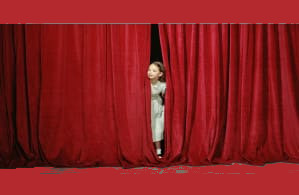
Schools will close soon, and the season is upon us, parents, to figure out the right ways to occupy and entertain our children. Today there are a dizzying array of choices for summer camps – some entertaining, some fun, and some that teach the child a thing or two. Most parents would like their child to learn something that complements their academics. So they veer towards science, maths and chess. But have you considered theatre? Do I see a look of bemusement? Why, you ask, would theatre teach my child anything except to act on stage. And act she does anyway!
There are surprising and long term benefits to an early exposure and interest in theatre. Here are some proven benefits to indulging your child’s theatrical interests at an early age.
- Language and Communication
Theatre is story telling in its most compelling form. And story telling enhances communication and language abilities. Children with an exposure to theatre and performing arts and proven to communicate better and more effectively.
- Problem Solving
Experts in early education agree that the fundamental skill that children should learn in their early years is problem solving. Children must develop skills that will help them navigate issues in their own social contexts – such as being away from a parent, being in a new environment, playing together with friends etc.
Theatre gives children a safe space in which to hypothetically navigate their many social issues and therefore learn how to solve their own problems.
The result is better cognitive abilities and a much higher level of self confidence!
- Social Skills
Children learn empathy through stories. As a story unfolds, children, in a safe way, and without consequences, understand human emotions, social skills and thereby form the beginnings of learning empathy. Empathy is a tough skill to learn. One learns empathy by being in real situations, but sometimes those learnings can be hard. Theatre is a safe and easy way to explore human emotions, social conduct and therefore understand empathy.
- Team Work
Theatre is not an individualized art. Theatre requires the collaboration and coming together of many people and many view points. When children learn theatre skills at a young age, they learn to listen, to follow and to cooperate. In today’s increasingly isolated world, these are essential skills for children to learn and internalize.
- Self Awareness
Theatre allows children to explore several skills through one integrated experience. In a theatre project or production, children are exposed to script writing, character sketching, sets, dialogues, acting, coordination and operations. Such a varied set of experiences essentially requires children to jump out of their comfort zone and explore areas of interest they may have otherwise shied away from. And through this process, children subliminally understand themselves and their abilities better. And where they earlier feared such experiences, they now face their fears without repercussions. What a way to become self aware!
Amelio has collaborated with Evam to create a special theatre workshop for children between 5-8 years of age. The workshop will introduce children to various aspects of stagecraft and performance. Needless to say, tons of fun and frolic along the way. The workshop is between 21st March and 30th March 2017 from 10am to 1pm.
Call 92822 00444 to register.
